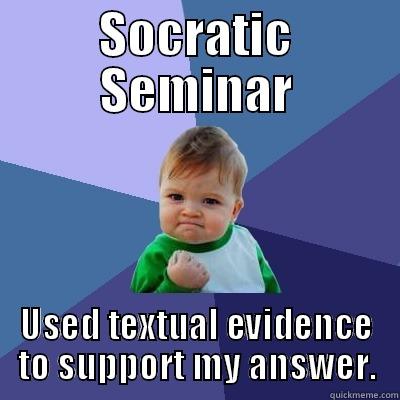
As a future English Language Arts teacher a main concern I have been battling within my mind is whether I will have time to form book clubs and independent reading time. Sometimes I tell myself: "Yes! Independent reading time is essential" other times I find myself saying, "how will I teach and still have time for independent reading time and prepare kids for testing?" (and then I proceed to cry internally about my future teacher struggles).

This chapter gave me tingles of excitement! Because, it made me feel like it is possible to have independent reading time and book clubs. I knew this was going to be a great chapter when I read, "We want our students to leave us with an enduring curiosity about our field, plus the motivation and the tools to continue the learning"(221). Thankfully, I had great English teachers while in school which left me with this exact feeling after I left high school. My high school teachers (and my mom who was also a teacher) always encouraged reading and writing throughout my life but also left me with a lifelong love for literacy. Even after high school I kept blogs, a writing journal, I review restaurants on Yelp! (Follow me here ;), I even wrote a novel at one point (which I sadly lost) and of course I read many different kinds of books in my free time. These are the type of things I want my students to find love in and continue to do even after high school. I had teachers who brought me up to the library and had me select a book for independent reading time; I had Mrs. Grant who would hold Socratic Seminars a couple of times a year; Mrs. Garces who would help use analyze novels and of course Mr. Occhi who would encourage us to keep writing.
What I truly loved about these chapters is how they explained step by step how to hold student's accountable. On page 228 there is a section where it explains how if you notice your students are struggling with a literary concept (Some examples could be: Theme, plot, contrasting texts, similes, etc.) you can actually teach a mini lesson. This also ties in with the CCSS in:

I think it is awesome that you want to foster a love of literature and writing outside and beyond your classroom. I understand the internal struggle between using class time for direct instruction versus for independent reading. But something that I have always tried to remember is, if you assign a student reading, you can't always expect them to do it. Reading could be intimidating or difficult, they might not have a great environment to read outside of school, or they could have trouble finding books to read that are interesting to them. I feel as though in-class independent reading and book clubs and help a lot of these problems, so I don't see it as a waste of time. Great post!
ReplyDeleteKaren,
ReplyDeleteSo, I definitely chose the same Albert Einstein photo as you did, without realizing it, but it definitely captures the the concept of the lifelong learner that D&Z was describing. I have the same internal struggle as you do--sometimes I am excited and eager to implement independent reading, and there are times where I feel like how am I going to have time to do all of this? I, too, enjoyed the part where the authors broke down steps to keep students accountable. This, I believe, is the most important aspect of independent reading because this is what will make students into lifelong learners.